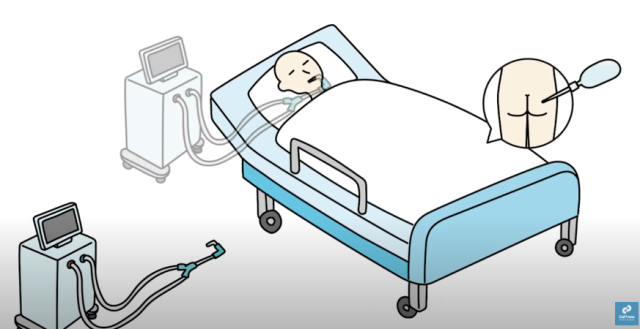
Your ass may one day save your ass.
It’s once again time for the Ig Nobel Prize, a counterpart to the Nobel Prize which looks for the more unorthodox studies that tend to be overlooked by the more mainstream academic awards. And Japanese researchers are perennial winners of Ig Nobels as a testament to their uncanny ability to find unique solutions such as kissing to alleviate allergies or the stuff that makes banana peels famously slippery as an artificial limb lubricant.
This year the Ig Nobel Prize’s panel of actual Nobel Laureates has honored Takanori Takebe for his groundbreaking research on breathing through your butt. Snicker if you will – I know I did – but this is actually important work that has the potential to significantly reduce human suffering and save lives around the world.
It all began from the discovery that those serpentine bottom-feeding fish known as loaches have the ability to absorb oxygen through their anus… or whatever a loach’s version of an anus is.
▼ I’ve never looked that closely at one.
So, Dr. Takebe thought if loaches can do it, why can’t we? It’s not such a farfetched idea since medicines are often administered rectally to be absorbed into the body. Oxygen ought to be accepted in a similar way, but the question is whether it could be done at a rate that would replace normal breathing.
A relatively large amount of oxygen would need to be injected, but blasting a bunch of air into someone’s butt, funny as that may sound, is impractical and highly dangerous. Instead, Dr. Takebe’s team developed a special fluid that could hold large amounts of oxygen and then deliver it into the anus through a tube, much like an enema.
After testing it on pigs and mice, they found that the animals’ physical condition improved and there were no side effects from this process they call “enteral ventilation via anus” or “EVA” for short.
▼ In this video, Dr. Takebe’s colleague Dr. Gokul Kannan gives more detail on EVA. However, this video is three years old, so some of the information may be outdated.
In case you’re wondering, that is indeed an homage to Evangelion. In the anime, characters submerge themselves in an oxygen-rich fluid very similar to what Dr. Takebe uses while piloting their Eva. Dr. Takebe also named his startup EVA Therapeutics Inc. and in June of this year began his first human trial on a healthy test subject.
If successful this could be a literal lifesaver as a way to deliver oxygen to people with problems such as pneumonia or newborns with respiratory issues. Ventilators have been used in such cases so far, but COVID-19 taught us that alternatives are sorely needed in widespread cases like pandemics when there aren’t enough ventilators to go around.
There’s so much potential in it that some readers of the news online wondered if Dr. Takebe should be in the running for a regular Nobel Prize rather than an Ig Nobel Prize.
“This is pretty important research, isn’t it? It’s for people who can’t breathe.”
“Is this really an Ig Nobel Prize? It should be a Nobel Prize.”
“It seems like this research could have even wider applications…”
“It might be a medical revolution.”
“If this research advances, we could really have that LCL liquid from Evangelion.”
“This is Ig Nobel? It’s an amazing story!”
“So Mario 64 was right when you could breathe with only your lower half out of the water.”
“And all my life people were telling me not to put things up there.”
As mentioned at the beginning of the article a lot of Ig Nobel Prize winners were conducting research with serious and important applications. In that way, it should be considered an honor on par with a Nobel Prize, which tends to turn its nose up at studies involving shoving things up our butts… That and Haruki Murakami.
Hopefully, one day the Ig Nobel Prize will be big enough to have a monetary award on par with the Nobel Prize too. Dr. Takebe received a cash prize of 100 trillion Zimbabwean dollars (US$0.40).
Source: Abema Times, PR Newswire, My Game News Flash
Featured image: YouTube/Cell Press
Insert image: ©SoraNews24
● Want to hear about SoraNews24’s latest articles as soon as they’re published? Follow us on Facebook and Twitter!